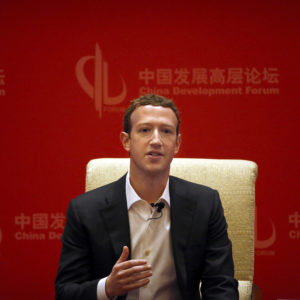Facebook’s data-sharing controversy with Chinese device makers, including the controversial Huawei, shows just how far the company will go to achieve an original goal of universal access to its social media platform — and the cost of doing so.
Facebook entered into data-sharing agreements with several device manufacturers — including Amazon, Apple, Blackberry and Samsung — as well as four Chinese device makers. At the time, some data sharing was necessary to enable consumers to have a full Facebook experience on their phones, as it was not yet possible to simply download the company’s app. Today this is no longer the case, however, except for a small part of consumers who still use much older phones.
Facebook’s first mistake is the extent of the data sharing it permitted, not to mention the fact that it is still occurring. Its more worrying mistake, however, is its decision not to disclose voluntarily these agreements. This once again puts the company in an unfavorable spotlight about user privacy, especially as Huawei has been flagged by U.S. intelligence officials as a national security threat.
Although Facebook is the one in the hot seat, other technology and social media companies should take heed. Sen. Mark Warner, D-Virginia, vice chairman of the Senate Intelligence Committee, said he and committee chairman Richard Burr, R-North Carolina, want to pursue a hearing with top executives of Facebook, Alphabet Inc.’s Google, and Twitter to discuss their relationships with Chinese
These questions are not being raised in a vacuum, but within a broader context of what has been described as “Washington’s escalating digital cold war with Beijing.” A recent digital confrontation between the United States and China has centered on China’s ZTE, which agreed to a $1 billion fine and scrutiny of its operations after allegedly reselling telecom components to North Korea and Iran, in violation of trade sanctions.
In addition, data privacy has been centerstage after Facebook founder Mark Zuckerberg testified before Congress about unauthorized data access by Cambridge Analytica, which reportedly had ties to the Trump presidential campaign. Data privacy is also front-and-center among policymakers globally, especially in the European Union, where the General Data Production Regulation (GDPR) recently took effect. If GDPR had been in effect when Facebook agreed to share data with device makers, it likely would have resulted in a significant fine against the company.
For consumers, who may have believed their privacy settings on Facebook kept their data secure, the implications of the company’s data sharing with device makers may be a shock. Clearly, it’s not enough to specify whether only “friends” or “friends of friends” can see your posts, if all your Facebook data is being collected by Facebook and shared with other multinational companies.
It also calls into question common practices among business professionals who try to protect their personal information when traveling to places like Russia or China with disposable “burner” phones, or by “wiping” their laptop hard drives clean. It now appears that many of these efforts may have been undermined.
The only way to trust the security of one’s data is, ultimately, to trust Facebook and similar platforms. The fact that Facebook admitted to the data-sharing arrangements with device makers only after they were disclosed first in the media does little to bolster such trust.
Going forward, as Facebook and other technology companies face increased scrutiny over data-sharing, they must be completely transparent with consumers. But therein lies a potential challenge: If one platform comes clean, it may create the impression that it protects its users’ data to a lesser extent than competing platforms, when in reality those competitors are simply less transparent about their practices.
The bigger risk, however, is in selective disclosure, as then consumers will not be fully aware of who has access to their data and so cannot make informed choices about what to share.

